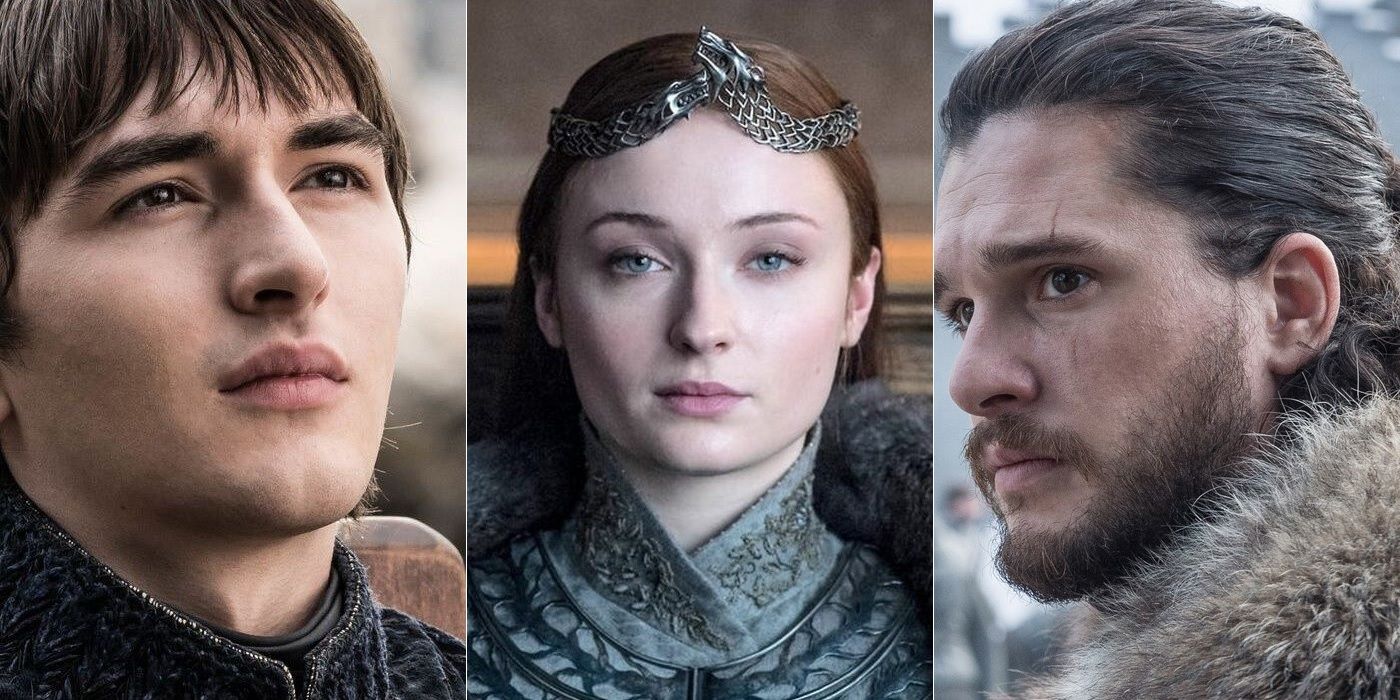
The final chapters for each of the surviving Stark children in Game of Thrones are foreshadowed by the show's very first season. For a long time, Game of Thrones was the undisputed king of television, regularly smashing records and racking up critical acclaim for fun. The big-budget HBO production began to derail after moving away from George R.R. Martin's source material, and Game of Thrones season 8 has been widely derided as a poor conclusion to the beloved fantasy series. Nevertheless, there are many staunch supporters of the Game of Thrones finale, all of whom maintain that the ending was in-keeping with previous seasons.
Game of Thrones is a story of many different rival families settling their disputes on a continental scale, but the tragic Stark clan are undoubtedly the heart and soul of Martin's tale. The Starks occupy Winterfell - the last stronghold before reaching the infamous wall to the north - and Eddard Stark, played by an on-brand Sean Bean, serves as both Warden of the North and the head of the Stark family. Ned's death triggers a series of events that reverberate across the land, sending the Stark children down a path of woe and misery, and when Game of Thrones season 8 ends, the only survivors are Sansa, Arya, Jon Snow and Bran, as well as the adopted Theon.
While the Game of Thrones finale will always be divisive, the endings of these five Starks all trace back to the very first season. Each of the surviving Starks began their Game of Thrones story wanting something desperately, and by the final episode, their wishes have been fulfilled, albeit usually at great cost. Here's how Game of Thrones season 1 sets up the ending of each Stark survivor.
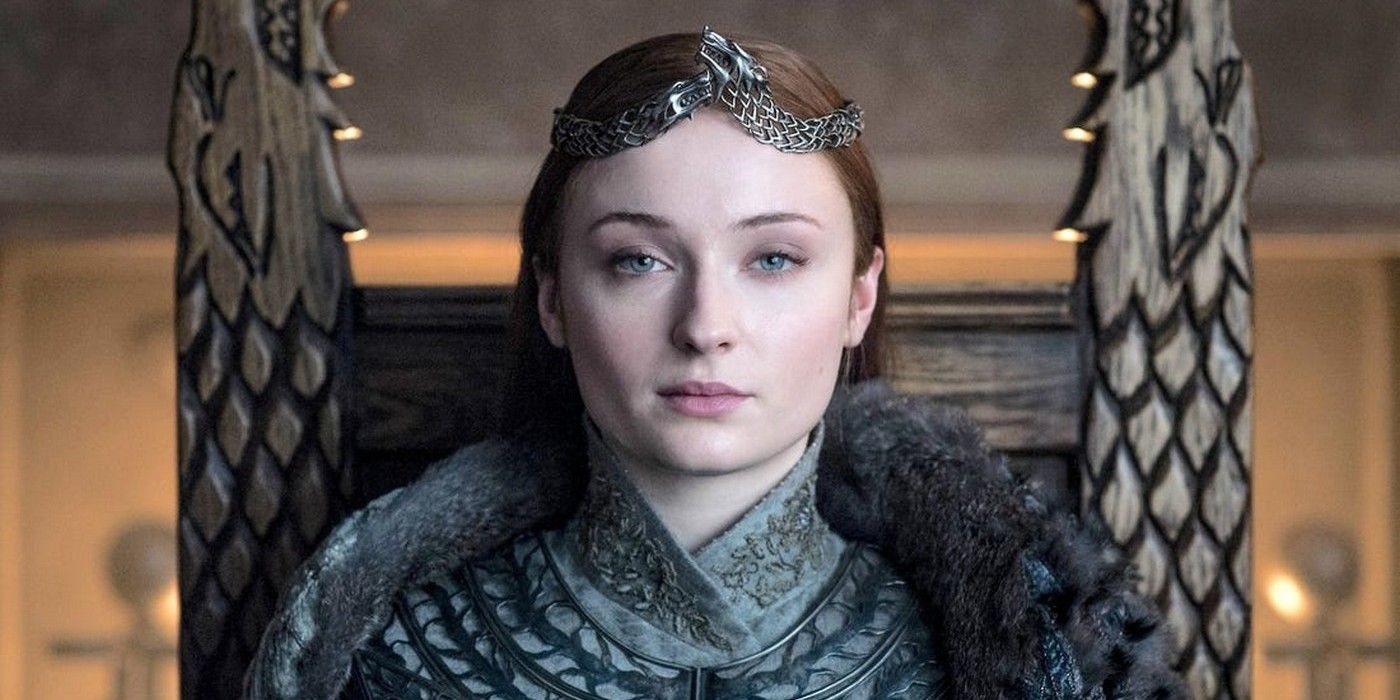
Sansa may not be the youngest of Ned and Catelyn Stark's brood, but she was perhaps the most naive initially. Played by Sophie Turner, Sansa Stark begins Game of Thrones season 1 enamored with the idea of becoming Queen. She fawns over the bratty Joffrey Baratheon and dreams of their future life together - a whirlwind of fancy engagements, beautiful dresses and public adulation. So determined is Sansa to achieve this dream, she's willing to overlook the obvious flaws of the Lannisters instead of supporting her own flesh and blood. Upon the conclusion of Game of Thrones season 8, Sansa's goal of becoming a beloved and powerful Queen has been achieved. When the dust settles on the final battle, Sansa is officially acknowledged as Queen in the North, taking over Winterfell and commanding the respect of her people. Sansa now possesses the crown and throne her season 1 self always dreamed of.
In what will become a recurring pattern, Sansa's adult life is far from the idyllic picture she imagined. Witnessing the beheading of her father scuppered Sansa's Disney-esque notion of becoming Queen, and her brief partnership with Joffrey proved pure torture after Sansa could no longer deny her former crush was a monster in human form (although we still prefer Olenna Tyrell's description). Sansa endured further horror at the hands of Ramsay Bolton, and the persistent creeping of Littlefinger, before finally becoming Queen of the North on her own terms. While Sansa might've achieved what she once hoped for as a child, the hardships she endured along the way created a very different type of monarch than Sansa might've aspired to be in Game of Thrones season 1.
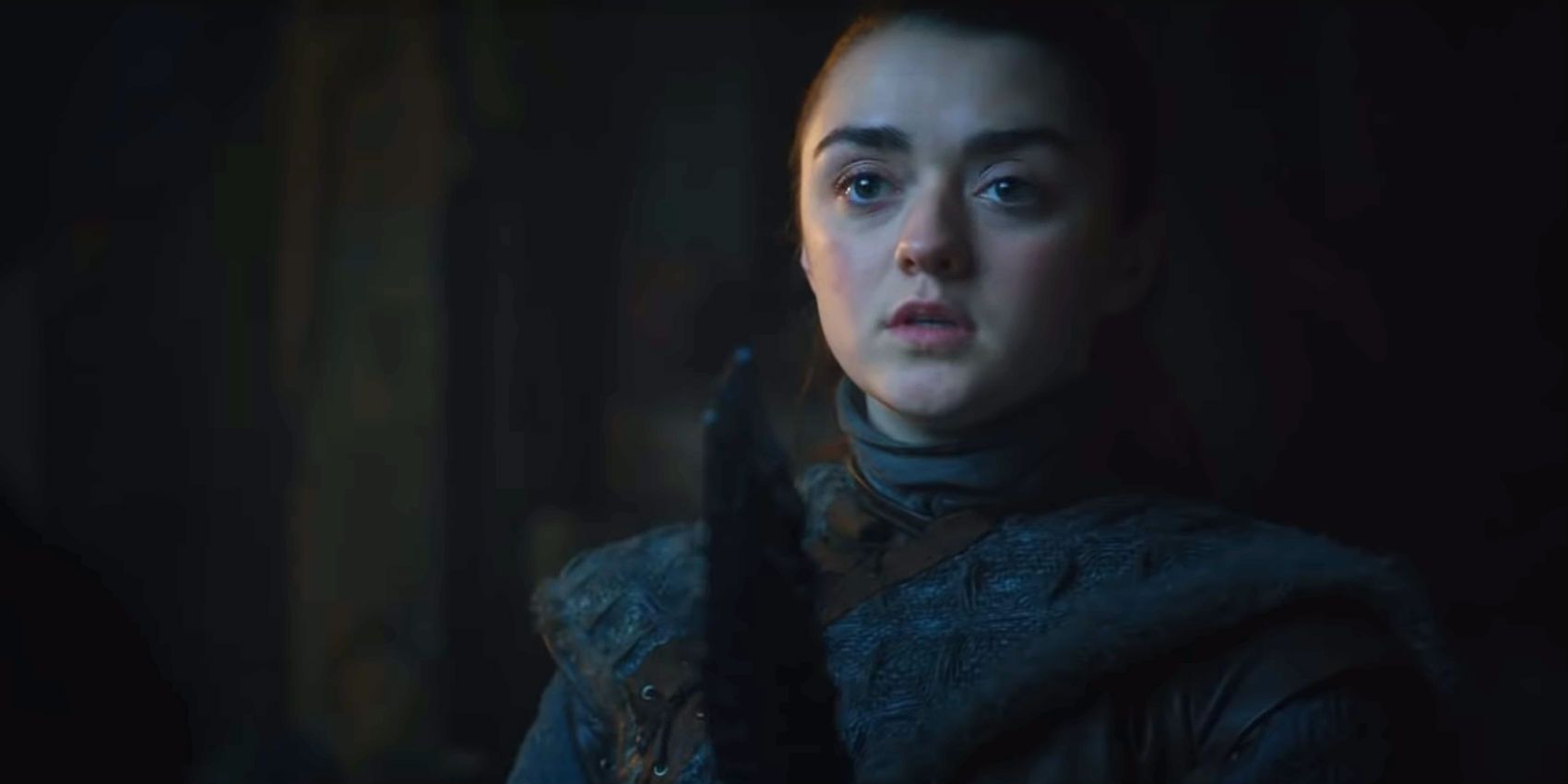
Maisie Williams' Arya Stark is the polar opposite to her sister when Game of Thrones begins. Arya shuns the typical feminine pursuits of homemaking, child-rearing and finding a suitable fella to marry, and instead indulges in the predominantly masculine activities of archery, sword fighting and war. The medieval attitudes of Westeros had little time for Arya's gender equality crusade, but she would meet a few willing mentors to bestow the art of combat upon her. More than anything, Arya longed to be taken seriously as a warrior, and that wish finally came true in Game of Thrones season 8 when she killed the Night King, the near-immortal enemy of Westeros that had slain countless heroic fighters. After saving the land from death's eternal chill, Arya could no longer be denied as a warrior of great renown.
As with Sansa, however, Arya could only achieve her childhood ambition through great sacrifice and loss. Arya's brutal training with the Faceless Men chipped away any remaining innocence, and her adventures in the wild were soaked in blood - not all of it belonging to her enemies. Arya's path gradually leads away from her family, and she strikes out alone to explore the world beyond Westeros. The decision to have Arya Stark kill the Night King was one of many contentious moments in Game of Thrones' final season, but the scene did at least fulfill a character arc that had been bubbling away since Arya's introduction in season 1.
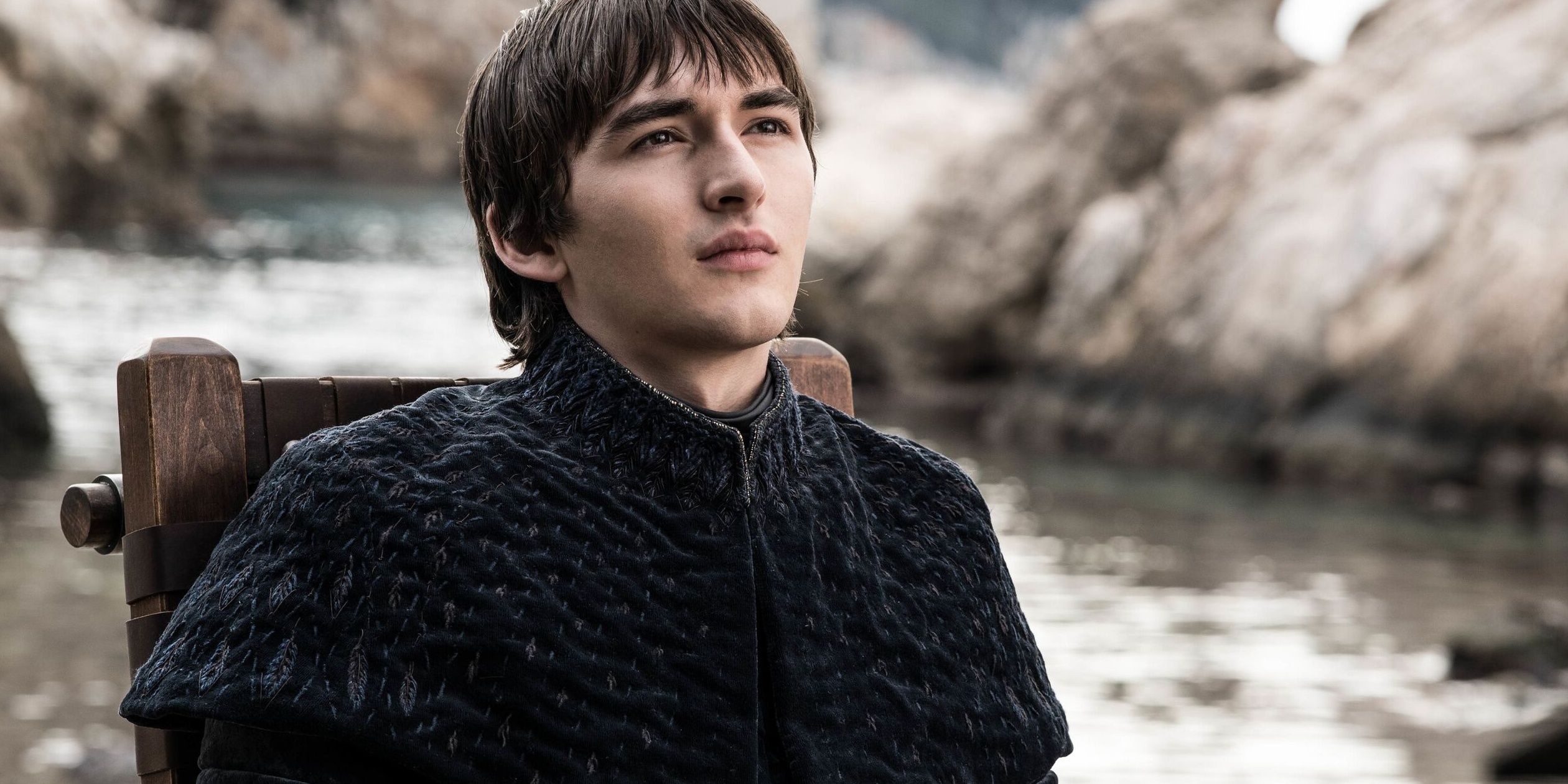
Brandon is the youngest of the Stark children (the ones that matter anyway, sorry Rickon) and arrives in Game of Thrones precocious and curious, climbing Winterfell's turrets, ignoring his mother, and witnessing incest within the royal family. Regular kid stuff. Bran's story in Game of Thrones season 1 is defined by the moment he finds Cersei and her brother getting down in a tower and is cruelly pushed from the window. But Bran's fall in Game of Thrones' first season foreshadows his eventual rise in season 8. Bran was crippled because his knowledge of an illicit affair between Cersei and Jaime threatened to destabilize the crown; in Game of Thrones' finale, Bran's knowledge of an illicit affair between Rhaegar Targaryen and Lyanna Stark destabilizes the crown by proving Jon Snow to be the rightful heir. Where Bran once gained his Westeros gossip by scaling the walls of Winterfell, his later revelations come courtesy of Bran's Three-Eyed Raven powers, which allow him to ascend higher than physically climbing ever could.
Once again, however, Bran's future demands a high price. By becoming the Three-Eyed Raven, Bran surrenders his own personality, becoming little more than an emotionless manifestation of the past, present and future. Bran no longer feels kinship towards his family, nor can he enjoy the simple pleasures of life with the heavy burden of knowledge and history on his shoulders. Bran climbs higher than ever in the Game of Thrones finale by ascending to the throne, overtaking Cersei on his way up - a sweet twist of fate from season 1.
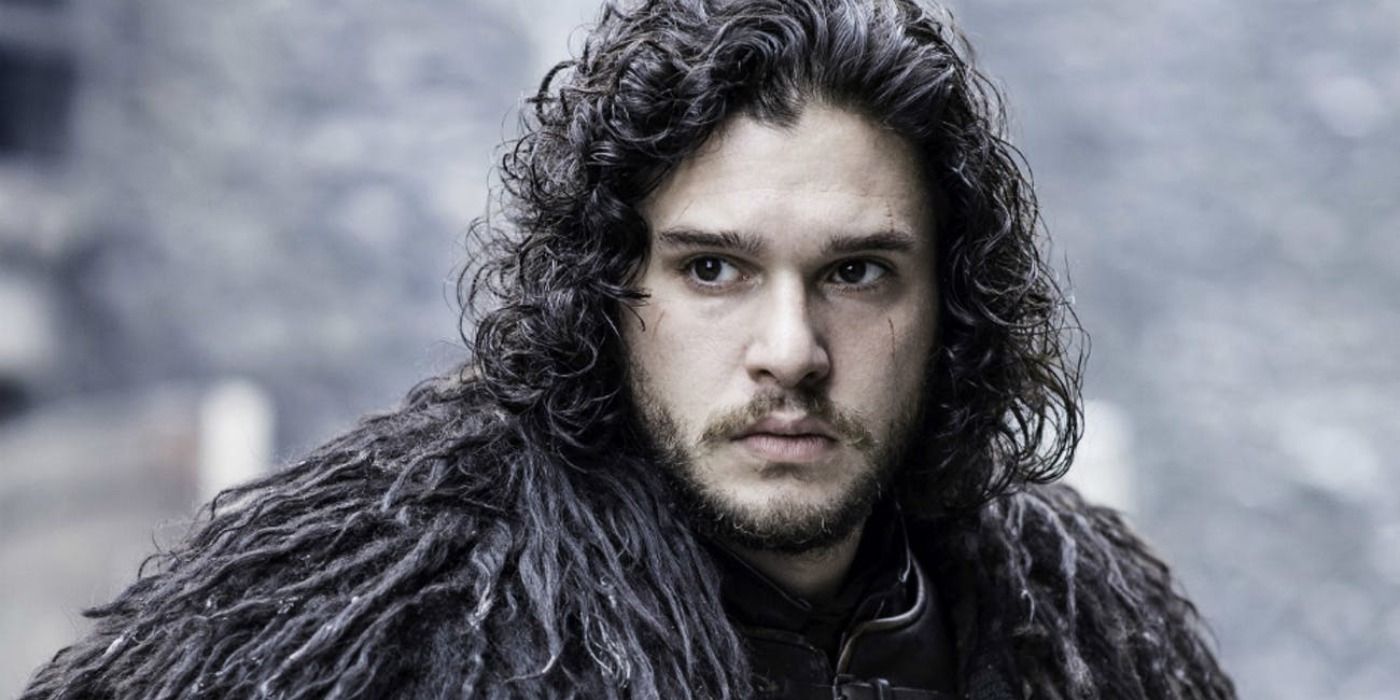
All the surviving Stark children end Game of Thrones in a similar place to where they began, but Jon Snow's final chapter offers the most direct comparison. In Game of Thrones season 1, Jon is known as Ned Stark's bastard child, and is sent to join the Night's Watch. Jon Snow ably defends Westeros from the threats beyond the Wall, but is soon pulled into grander events that will dictate the future of the land. After Bran becomes the new king in Game of Thrones season 8, there is disagreement over what becomes of Jon following the assassination of Daenerys Targaryen. The agreed solution is to send Jon north once again, mirroring the first phase of his story in season 1.
The other aspect of foreshadowing in Jon Snow's story relates to themes of family and identity. As a supposed bastard, Jon struggles among the other Stark children. Catelyn never fully accepts him, and Jon knows he'll never enjoy the same status as Robb or Bran. In the Game of Thrones finale, however, Jon finally has a family to call his own. Throughout the seasons, Jon moved from Winterfell, to Castle Black, to the North, to Dragonstone, and never quite found a place to call home. Although he might not be a Wildling by blood, Jon's final scene proves the former bastard has found somewhere to belong - a feeling he craved since the very first season. Unfortunately, this comes at the cost of severing ties to Jon's true bloodline. The boy once known as Aegon Targaryen killed his Aunt Daenerys, left behind the Starks he was related to through his mother, and renounced a legitimate claim to the throne.
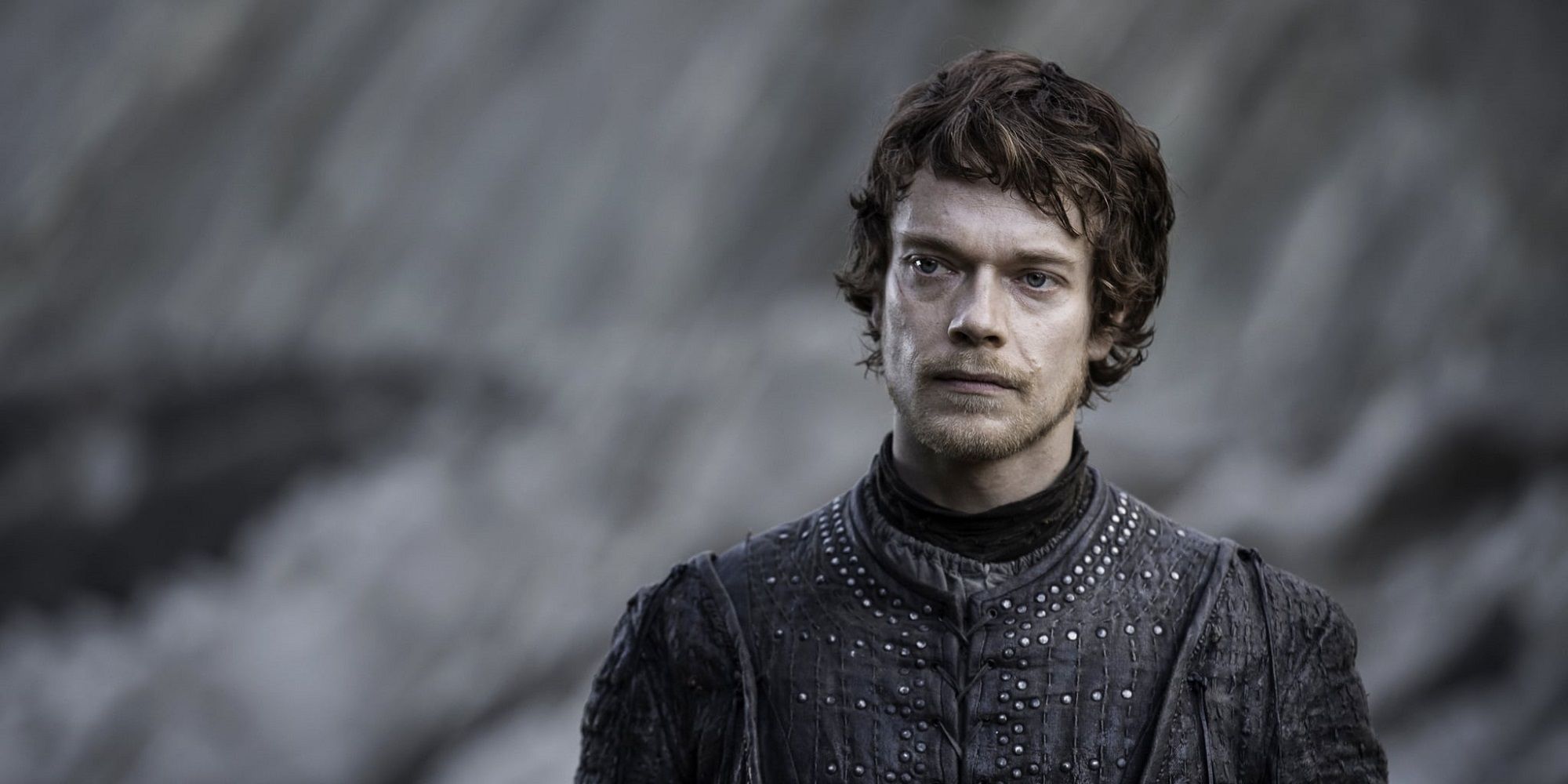
Theon may not have been a Stark by blood, but he was part of the original young Winterfell crop in Game of Thrones season 1, and was adopted by Ned and Catelyn from a young age, making him a Stark child in almost every other sense. Similar to Jon, Theon's struggle concerns family and identity, with the Ironborn even more of an outsider than his bastard brother. Theon's desire to prove himself worthy in a family full of over-achievers leads him to make some questionable decisions in Game of Thrones. Greyjoy aligns with House Bolton and helps Ramsay seize Winterfell in a bloody invasion, incurring the wrath and hatred of those he once considered family. In Game of Thrones season 8, Theon finally succeeds in proving himself to the Starks, as he defends Bran from the Night King and allows Arya to strike the final blow.
As with the other Starks, Theon's path was far from smooth, and the moment he eventually gained recognition perhaps wasn't what he envisioned in his head as a youngster. Theon also recognized the need to forfeit his life to truly win the respect of Jon, Arya, Sansa and Bran, but bravely faced his future with non-existent balls of steel.
A common criticism of Game of Thrones' final season is that the show pulled too many surprises from thin air - Bran becoming King, Arya killing the Night King, Jon taking out Daenerys, etc. However, the fates of the Stark children were all clearly laid out as early as season 1. This might suggest that the real problem with the Game of Thrones finale wasn't necessarily the end destination, but the hasty manner in which David Benioff and D.B. Weiss arrived there.
from ScreenRant - Feed https://ift.tt/37xRBMW


0 Comments